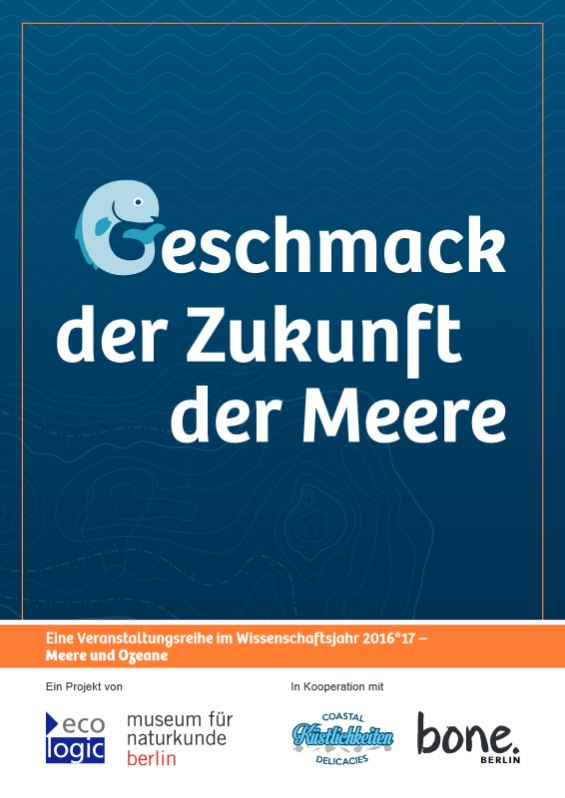Pilotbericht "Ein Geschmack der Zukunft der Meere"
Project report and how-to guide for organising popular scientific events on sustainable consumption
- Publication
- Citation
McFarland, Keighley, Jennifer Reck, Alexandra Moormann, Lilian Leupold, Maria Korbizki, Karl Lehmann, Lina Röschel, Stefanie Krzyzniewski, Chiara Mazzetti (2017) Pilotbericht „Ein Geschmack der Zukunft der Meere“. Hrsg. Ecologic Institut gemeinnützige GmbH und Museum für Naturkunde Leibniz-Institut für Evolutions- und Biodiversitätsforschung. Berlin.
Engaging the public on science and sustainable consumption: the how-to guide published in the pilot report "A Taste of the Future of the Seas" explains how to organize fun and impactful popular-scientific events, with a special focus on sustainable food. The guide, published by Ecologic Institute, is part of the Science Year 2016*17 – Seas and Oceans and is available for download in German.
Description, goal, and target audience of the Pilot Report
This Pilot Report consists of a how-to guide for organisations and scientific institutions that want to put on entertaining events that bring together science and sustainable consumption, and especially sustainable food.
The goal of the report is to encourage similar event series in other institutions and to provide recommendations for planning and implementation.
The report is targeted at scientific institutions (research institutes, museums, universities, foundations, etc.) and organisations/agencies for science communication. The report is available only in German.
"A Taste of the Future of the Seas": project description
This report was created within the joint project "A Taste of the Future of the Seas" by Ecologic Institute and the Museum for Natural History (Museum für Naturkunde) Berlin. The project ran from February to October 2017 and was funded by the German Federal Ministry for Education and Research (BMBF) as part of the Science Year 2016*2017 - Seas and Oceans.
Project background
Our oceans and their biodiversity are increasingly influenced by anthropogenic activities. Oceans and seas are an essential food source for roughly a billion people globally. Though it is of utmost importance to use this resource sustainably, the devastation of the seas through pollution, overfishing, illegal fishing and climate change irreversibly harms vital functions and food networks. Several of these issues are linked to consumer behaviour, but the large majority of consumers remain unaware of their impact due to the complexity of the problem.
Project Goal
The Project "A Taste of the Future of the Seas" ("Ein Geschmack der Zukunft der Meere") presents scientific findings on sustainable use and protection of oceans to a broad audience through interactive and fun events. Participants will learn about the advances and challenges in sustainable marine science while simultaneously being animated to actively participate in sustainable change and consumption.
The following interactive events took place at the Museum for Natural History in Berlin:
- The event series "Science Sips" will cover short, energetic presentations on different topics on marine science and give participants the chance to enjoy snacks and drinks from sustainable seafood
- The special theme day on "A Taste of the Future of the Seas" is dedicated to teaching families, tourists and young adults about marine science and sustainable consumption through special tours, interactive exhibits, sustainable seafood snacks, and more
- Additionally, the information booth "Future Fish" will accompany all events and will help participants make a connection between scientific findings and sustainable consumption and offer sustainable options for taking action in their own lives
